How to Deal With Your Baby Falling Off the Bed?

The initial stages of being a parent can be one of the most stressful times of your life, especially if it is your first child. However, fear not; most of your fears are irrational and stem from your parental sense of protectiveness. Babies have an irregular sleeping pattern, especially in the early months. They can fall asleep during the daytime, and most often than not, wake up crying when everybody is asleep. Usually, the only time when they are not the focus of their parents’ attention is when the parents are asleep or out of the room. In these few moments, it is entirely possible that the baby may fall off the bed. So, if your baby fell off the bed and hit his head in the past, and you want to prevent a future reoccurrence, read on.
What Should You Do if Your Baby Falls Off the Bed?
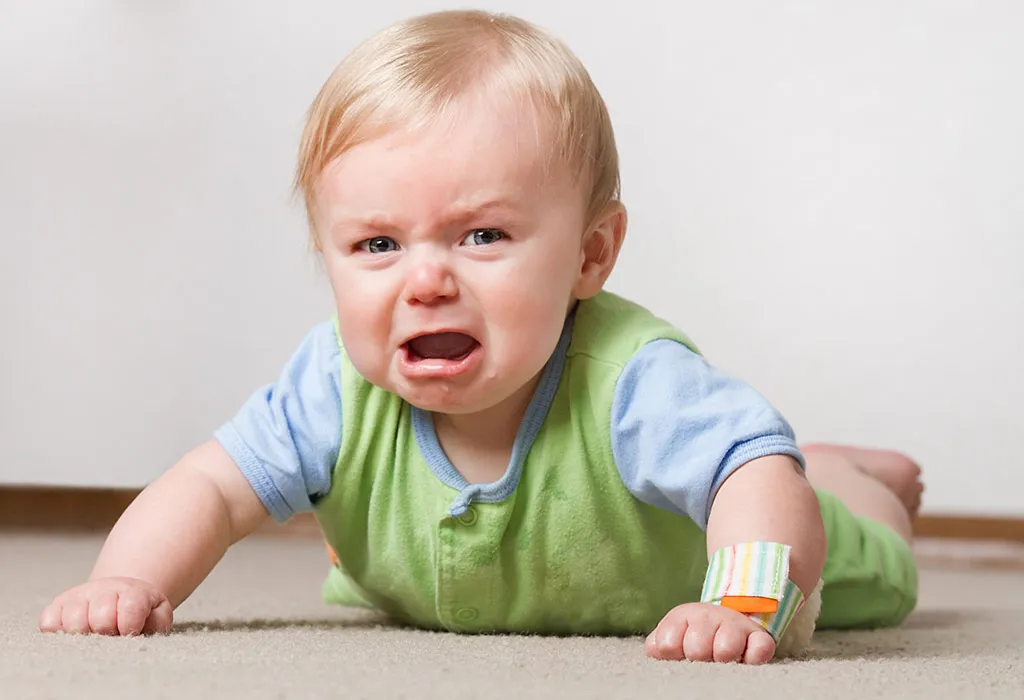
Babies are small, so it is easy to think that they are incapable of crawling over to the edge or even falling off the bed. However, the effects of flailing arms and kicking legs should not be underestimated. The baby falling off the bed is a common problem faced by new parents.
Your baby falling off the bed can make you feel as if you are a terrible parent. However, the baby falling from the bed is a widespread occurrence. Instead of fussing over the baby, you must remember to follow the following steps to ensure that there are no lasting effects on your child’s health (1).
- Stay calm: Take a deep breath and try to remain calm to effectively assess the situation.
Check for injuries: Gently examine your baby for any signs of injury, paying close attention to the head, neck, and limbs. - Monitor for symptoms: Keep an eye out for symptoms such as excessive crying, vomiting, lethargy, or changes in behavior, which could indicate a more serious injury.
- Contact a healthcare professional: If you notice any concerning symptoms or if you’re unsure about your baby’s condition, don’t hesitate to contact your pediatrician or seek medical attention immediately.
Complications or Signs of Injury When the Baby Falls Off the Bed
When a baby falls off the bed, it can be a distressing experience for both the child and the parents. While most falls result in minor bumps or bruises, it’s essential to be aware of potential complications or signs of injury that may require medical attention. So if your newborn fell off the bed, here are some indicators to watch for:
1. Loss of Consciousness
If your baby loses consciousness, seek medical help immediately.
2. Excessive Crying
Persistent crying that cannot be soothed may indicate pain or discomfort.
3. Vomiting
Frequent or forceful vomiting could be a sign of a head injury and should be evaluated by a healthcare professional.
4. Abnormal Breathing
Difficulty breathing or irregular breathing patterns should be taken seriously.
5. Unequal Pupil Size
If one pupil appears larger than the other, it could be a sign of head trauma.
6. Lethargy or Excessive Sleepiness
Difficulty waking your baby or extreme drowsiness could indicate a concussion or other injury.
7. Seizures
Seizures following a fall may indicate a more severe head injury and require immediate medical attention.
8. Persistent fussiness or Irritability
Continued fussiness or irritability beyond what is typical for your baby may warrant further evaluation by a healthcare provider.
Initial Checking for 24 Hours After the Baby Fell From Bed
If you do wake up at night hearing a thump and find out that your baby has fallen, it is important to observe your child for the next 24 hours to find out if there are any lasting effects.
Initially, you need to check whether your baby is conscious. The fall could make your baby lose consciousness initially, and the toddler may appear to be limp or sleeping. The consciousness is regained rather quickly, and they may resume crying. Even though it may seem normal, it is imperative that you treat this situation as a medical emergency. It is advised to not move your child immediately after the fall, since it may cause further injury to the child.
Pick up your baby and comfort him gently if he does not seem to be physically injured. Babies may be confused, alarmed and scared after a fall. While holding the baby, inspect him for any physical signs of harm, especially on the head area. Although the baby falling off the bed and hitting his head is a common accident, it needs to be treated with caution. If the child is under the age of one, the situation should be treated as a medical emergency and you must take him to a doctor right away.
Dealing With the Bump on Your Infant’s Head After Falling Off the Bed
If there is any impact on your infant’s head, it is possible that he may develop a bulge in the shape of an egg in that area. However, the egg-shaped bulge is not as bad as it seems- it will usually go away after a short period of time. The bulge means that there is swelling in the area, but only superficially.
To deal with the bulge, you have to apply a cold compress on it every hour, for about five minutes. This is easy to do, but the only difficulty is distracting the child from the chill of the ice pack. The bulge usually disappears within a few hours, and if it doesn’t, you should consult a doctor.
When You Should Call a Doctor?
If the situation seems out of control or seems to worsen, you should call the doctor for an expert opinion. However, in most cases, this won’t be necessary.
- If your child seems to have any deformity after the fall, you should visit a doctor immediately.
- Broken bones are another case of emergency, and you need to visit a hospital without any delay to get the necessary treatment for your toddler.
- In case of any cuts or bruises, it may be advisable to wrap the wound with the help of an expert nurse or doctor.
- If the bleeding is internal – your child has bleeding in the nose, eyes or ears, then a visit to the doctor is a must. This should be treated as a critical condition, as it could point at internal clotting.
- Brain haemorrhages also have the same symptoms as internal bleeding. Remember this when you take your child to the hospital.
- A concussion is another danger, and its signs include dizziness, weakness, and sluggishness, combined with vomiting. This indicates that the hit was harder than it seemed.
- Another thing to notice is if the baby seems to be experiencing a blackout without any quick movements in the eyes.
- The pupils may seem to vary in size after the fall, with one pupil more significant than the other.
- Finally, if the baby appears to be crying for longer than usual, it is indicative of some internal problem. Take your child to the doctor immediately.
How to Prevent the Baby From Falling Off the Bed or Getting Injured?
There are many ways to prevent your baby from falling off the bed and hitting their head, or at least reducing the effect of the fall.
- First and foremost, remove the bed frame and place the mattress on the floor to minimize the distance to the floor.
- Push the mattress against a wall, and ensure that the table and chairs are far away so that the child does not bang against them in case of a fall.
- Teach your child to get off the bed in a safe manner by sliding off on their belly when they are old enough.
- Place a soft carpet on the floor to minimise the risk of an injury in case the baby happens to fall.
- Always place two pillars on either side of the baby to prevent him from rolling off the bed while sleeping.
- Install bed rails or guards on the sides of the bed to create a barrier that prevents the baby from rolling off.
- Avoid leaving the baby unattended on the bed, especially if they are active or prone to rolling over.
- Use a baby monitor to keep an ear on your baby’s movements, even when they are sleeping, to intervene if necessary.
FAQs
1. Should I move my baby immediately after they fall off the bed?
It’s essential to assess your baby’s condition first. If they are responsive and not showing signs of serious injury, you can gently check for any bumps or bruises. However, if you notice any concerning symptoms or if your baby appears to be in pain, it’s best to seek medical advice before moving them.
2. How can I make my baby’s sleeping environment safer?
To create a safer sleeping environment, consider using a firm mattress with a fitted sheet and removing any soft bedding or pillows that could pose a suffocation risk. Additionally, ensure that the crib or bassinet meets safety standards and is free from hazards such as loose screws or sharp edges.
3. How can I educate myself and others about preventing falls?
Empower yourself and others with knowledge about baby safety by attending parenting classes or workshops that cover topics like safe sleep practices, baby-proofing your home, and preventing falls. Additionally, share information with friends and family members who care for your baby to ensure consistency in safety measures across different environments.
This was all about what happens when a baby falls off the bed. Babies falling off the bed is a phenomenon that is bound to happen during the initial stages, no matter how attentive you are. While there are few things that could go wrong in the long term, care must be taken to ensure that there are no lasting effects of the fall on the child.
References/Resources:
1. Baby Fell Off the Bed and Hit Their Head? Here’s What To Look For; Cleveland Clinic; https://health.clevelandclinic.org/what-to-do-if-your-infant-falls-off-the-bed-or-changing-table/
2. Trauma and children – newborns to two years; Better Health Channel; https://www.betterhealth.vic.gov.au/health/healthyliving/trauma-and-children-newborns-to-two-years
3. Head injury – general advice; The Royal Children’s Hospital Melbourne; https://www.rch.org.au/kidsinfo/fact_sheets/Head_injury/
4. How to Help Babies and Toddlers When They Fall; Pathways.org; https://pathways.org/baby-falling/
5. Head Injury in Children; Johns Hopkins Medicine; https://www.hopkinsmedicine.org/health/conditions-and-diseases/head-injury-in-children
6. Head Injuries; Nemours Kids Health; https://kidshealth.org/en/parents/head-injury.html
7. Head Injury in Children: How to Know If It’s Minor or Serious; American Academy of Pediatrics; https://www.healthychildren.org/English/health-issues/injuries-emergencies/Pages/Head-Injury.aspx
Also Read:
Baby Proofing Checklist
Ways To Keep Your Baby Safe and Protected
How to Prevent Your Child From Falling and Hurting Himself?
Was This Article Helpful?
Parenting is a huge responsibility, for you as a caregiver, but also for us as a parenting content platform. We understand that and take our responsibility of creating credible content seriously. FirstCry Parenting articles are written and published only after extensive research using factually sound references to deliver quality content that is accurate, validated by experts, and completely reliable. To understand how we go about creating content that is credible, read our editorial policy here.






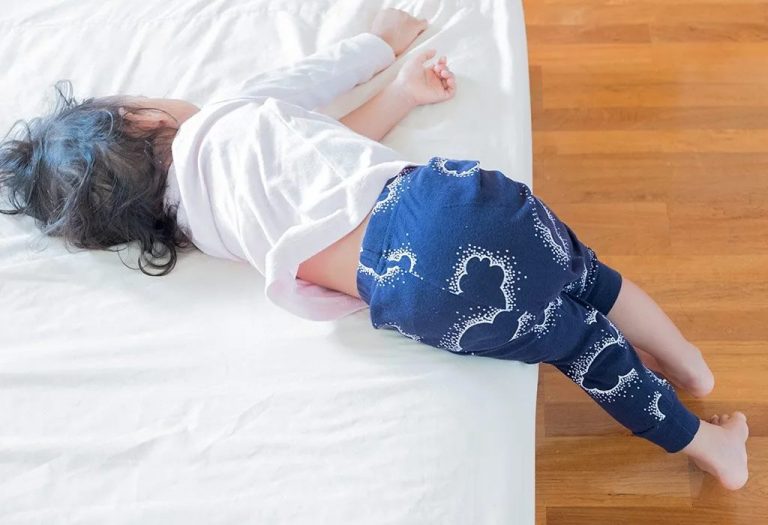








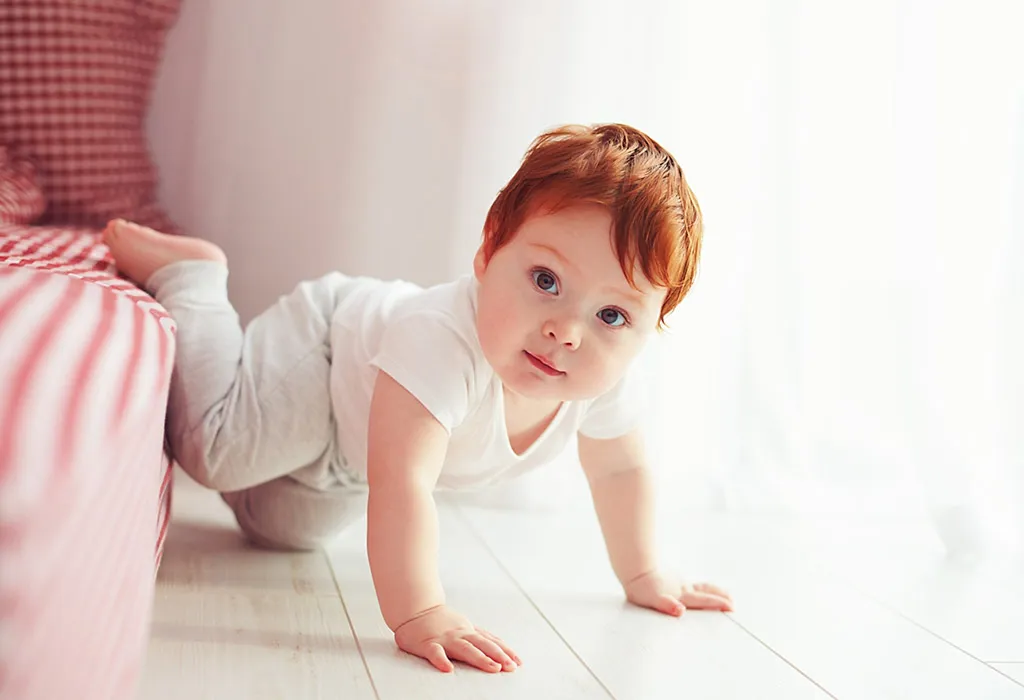
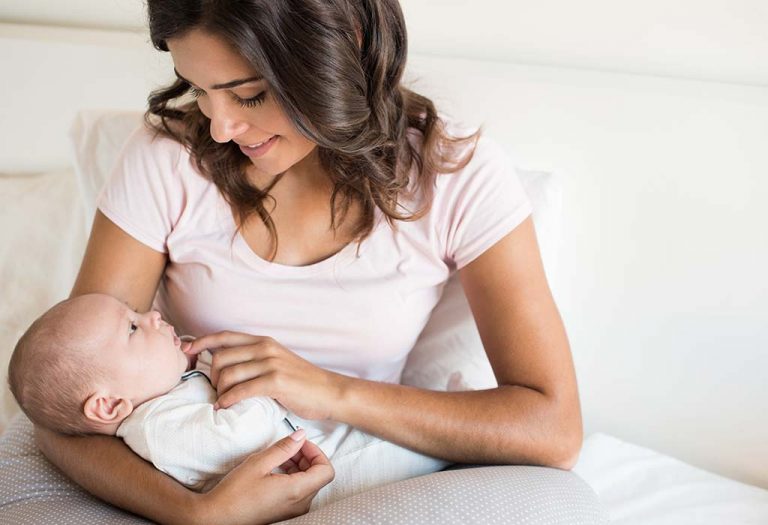

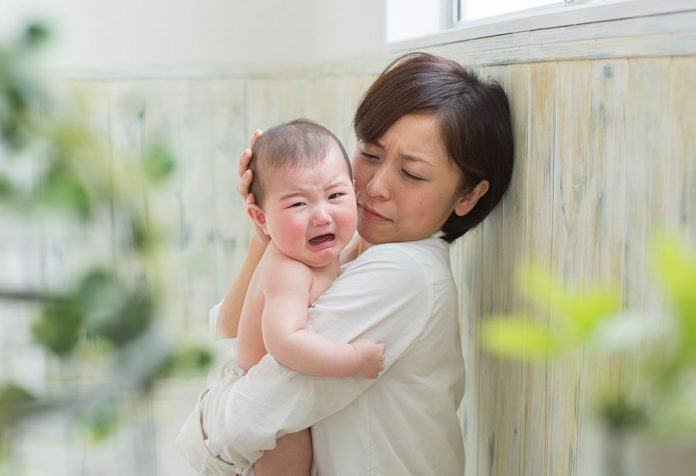
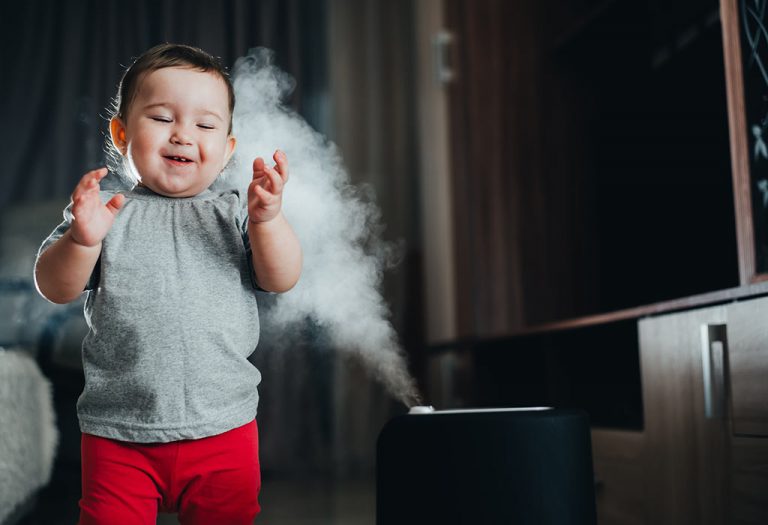
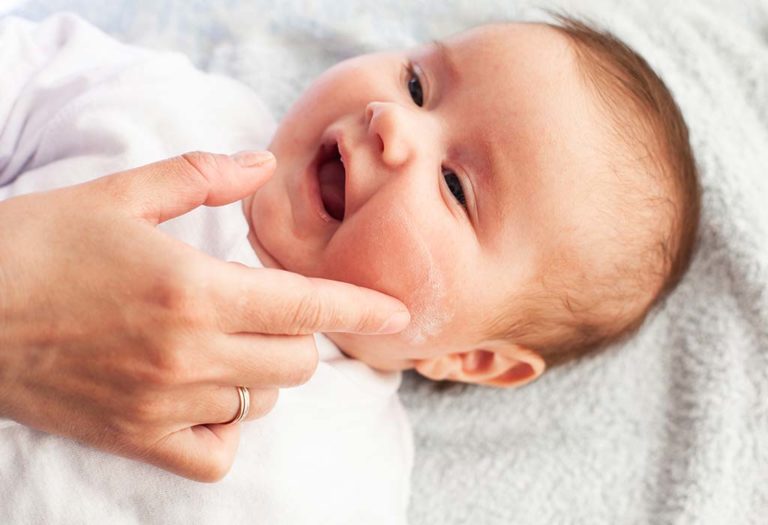
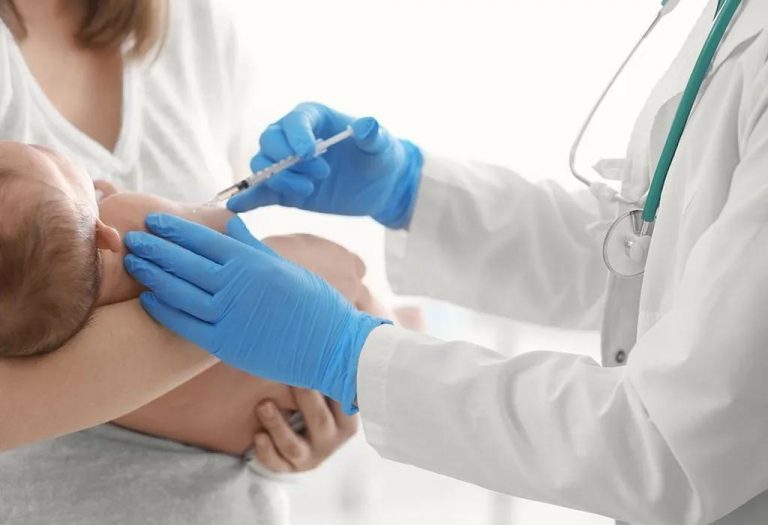

.svg)


















